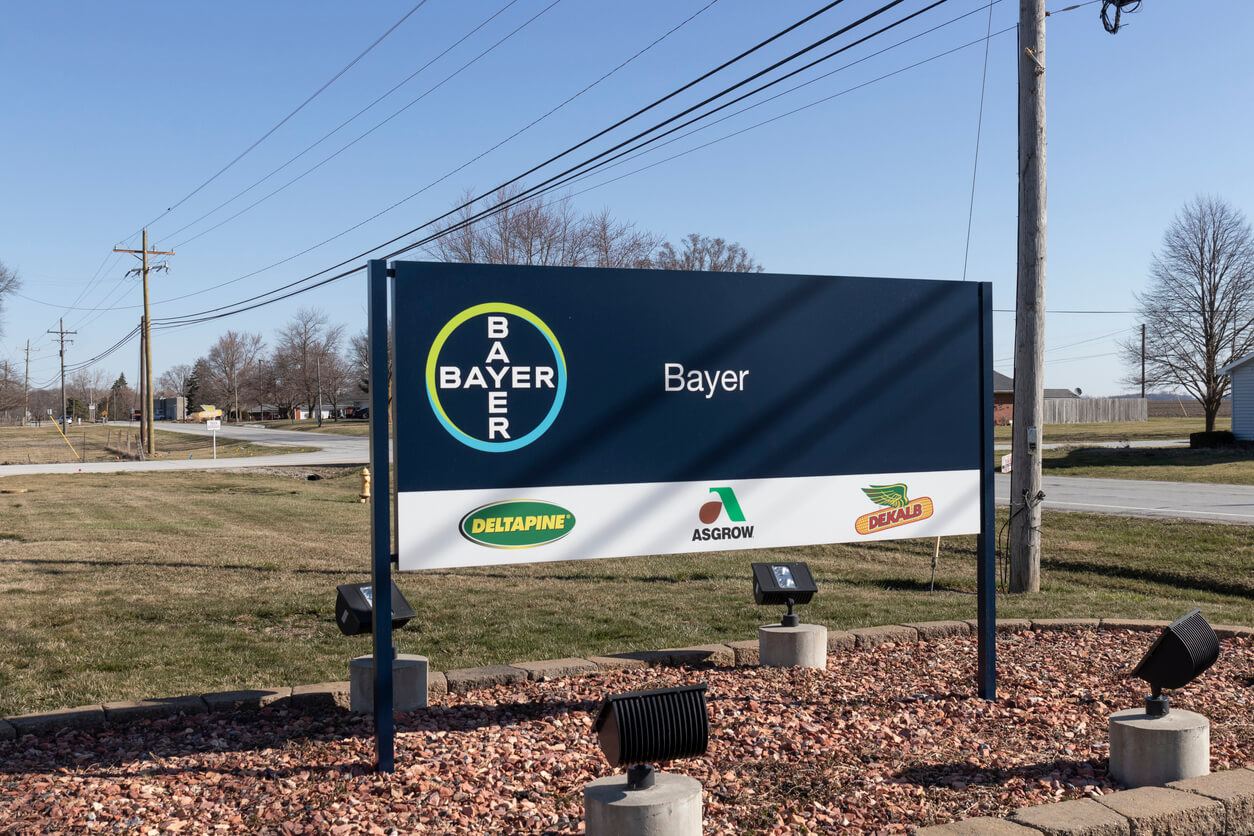Bayer Aims to Move Past Roundup Lawsuits. What Their Tactics Mean for Plaintiffs
Editors carefully fact-check all Consumer Notice, LLC content for accuracy and quality.
Consumer Notice, LLC has a stringent fact-checking process. It starts with our strict sourcing guidelines.
We only gather information from credible sources. This includes peer-reviewed medical journals, reputable media outlets, government reports, court records and interviews with qualified experts.

As Bayer faces tens of thousands of active Roundup lawsuits, the company is pursuing various strategies to resolve the litigation, including:
- A potential new settlement
- Possibly moving Monsanto into bankruptcy
- Pushing for state laws that limit lawsuits
- Looking to the U.S. Supreme Court to decide
These Roundup lawsuits, which span federal and state courts, claim that the popular weed killer is tied to the development of non-Hodgkin lymphoma. Litigation has been ongoing for years, and Bayer has experienced severe losses in court.
In March of 2025, a Georgia jury awarded $2.1 billion to a man who said he developed cancer because of Roundup exposure.
Now, Bayer’s efforts to move past the widespread litigation are heating up. Here are the methods Bayer is pursuing and what each one could mean for people who have filed lawsuits.
New Roundup Lawsuit Settlement Could Be Coming
After agreeing to a multibillion-dollar settlement for some cases in 2020, Bayer could be looking to resolve some of the ongoing litigation via a new settlement.
The Wall Street Journal reported in May 2025 that Bayer is working on a new settlement that could cover thousands of Roundup cases pending in Missouri state court. These cases comprise a significant portion of the overall litigation.
It’s unclear exactly how many cases a potential settlement would cover or how much money would be paid out. However, a new settlement could be a win for impacted plaintiffs, as they might be eligible to receive individual payouts.
Monsanto Bankruptcy Could Be Considered
If a new Roundup settlement is not successful, Bayer may consider having Monsanto, which was purchased by Bayer in 2018, file for Chapter 11 bankruptcy. As the manufacturer of Roundup, Monsanto is typically named as a defendant in lawsuits.
A bankruptcy filing could have a dramatic impact on the overall Roundup litigation. It would pause the current lawsuits while the bankruptcy proceedings are ongoing.
When a company facing thousands of lawsuits declares bankruptcy, part of the process usually includes coming up with payouts to resolve claims.
If Monsanto filed for bankruptcy, people who have filed Roundup lawsuits would likely eventually receive a payout as part of a settlement.
States Pass Laws Shielding Bayer From Roundup Lawsuits
Bayer is pushing individual states to pass laws that could shield the company from future lawsuits. In the last month, it has had some success with this strategy.
North Dakota and Georgia recently signed laws that make it more difficult for people to file lawsuits based on the type of claims that are central to Roundup lawsuits. These lawsuits typically claim that Monsanto failed to warn its customers of a cancer risk from their product.
But the newly passed laws essentially shield pesticide makers from these claims by establishing that manufacturers only need to follow federal labeling requirements. The Environmental Protection Agency, which operates at the federal level, does not require a cancer warning on Roundup.
These laws are new, so it will take time to assess their impact on the legal process. For example, residents in impacted states may still be able to file cases in federal court or other state courts. Also, the Georgia law does not take effect until 2026, so current Roundup lawsuits won’t be impacted.
While similar bills have been introduced in other states, some have been unsuccessful. For example, Iowa recently opted not to advance its version of a bill protecting pesticide manufacturers.
Bayer Pushes for Supreme Court To Weigh in on Roundup Lawsuits
Bayer has taken steps to have one of the key issues at the heart of Roundup lawsuits decided by the U.S. Supreme Court. The issue concerns federal preemption. This is when federal law overrules conflicting state laws.
This issue has seen split results among lower courts. The 9th and 11th Circuit Courts of Appeal sided with people who have filed lawsuits on this topic, while the 3rd Circuit sided with Bayer.
In April 2025, Bayer filed a petition for the Supreme Court to review a Roundup case. If the court takes the case, it will likely be part of the 2025–2026 session.
A Supreme Court ruling in Bayer’s favor could potentially be devastating to lawsuits. However, it is unclear how the court will rule. It is also unknown whether the litigation will get this far.